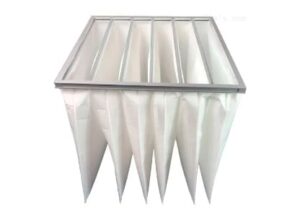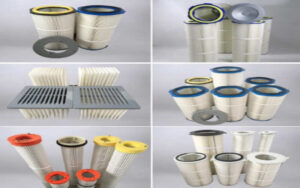Terminal HEPA (High-Efficiency Particulate Air) filters are vital components in maintaining air quality in environments that demand stringent cleanliness standards. Capable of capturing 99.97% of particles measuring 0.3 microns or larger, these filters play a crucial role in preventing contamination across various industries. This article provides an in-depth look at terminal HEPA filters, focusing on their applications, installation procedures, maintenance protocols, and the standards governing their use.
Applications of Terminal HEPA Filters
Critical Environments Requiring High Purity
Terminal HEPA filters find application in several sectors where air purity is paramount:
- Healthcare Facilities: In hospitals and clinics, these filters maintain sterile conditions, particularly in operating rooms, intensive care units, and isolation rooms, thereby protecting patients and staff from airborne pathogens.
- Pharmaceutical Manufacturing: Essential in this sector, terminal HEPA filters prevent contamination during the production of medicines, ensuring the integrity of pharmaceutical products.
- Biotechnology and Research Labs: Laboratories utilize these filters to safeguard sensitive experiments and processes from airborne contaminants, thereby ensuring reliable research outcomes.
- Electronics Manufacturing: Clean air is critical in the production of electronic components, where even minimal dust can lead to defects.
- Cleanrooms: Industries such as aerospace, optics, and nanotechnology rely on terminal HEPA filters to maintain controlled environments with minimal particulate levels, essential for product quality and performance.

Installation Procedures for Terminal HEPA Filters
Key Installation Steps
Proper installation is crucial for the effective operation of terminal HEPA filters. Consider the following steps:
| Step | Description |
|---|---|
| Placement | Install filters at the end of the HVAC system to ensure all incoming air passes through the filter. |
| Sealing | Use gaskets and gel seals to create an airtight fit and prevent air bypass. |
| Flow Rate | Calibrate the HVAC system to maintain appropriate airflow, avoiding excessive pressure drops. |
| Orientation | Follow manufacturer guidelines for correct filter alignment to ensure optimal functionality. |
Maintenance of Terminal HEPA Filters
Essential Maintenance Procedures
To sustain the effectiveness of terminal HEPA filters, regular maintenance is essential. Recommended procedures include:
- Inspection: Conduct periodic visual checks for damage or wear on the filter and its housing.
- Testing: Perform regular performance tests, including particle counting and airflow measurements, to ensure filter efficiency.
- Replacement: Adhere to the manufacturer’s recommended replacement schedule, adjusting for operating conditions and contaminant load to maintain optimal performance.
- Cleaning: While HEPA filters themselves are not typically cleaned, ensuring the cleanliness of the surrounding environment and ductwork is crucial to minimize contamination.
Standards and Certification for Terminal HEPA Filters
Governing Standards
Terminal HEPA filters must adhere to specific standards to guarantee their reliability and performance. Key standards include:
- IEST (Institute of Environmental Sciences and Technology): Establishes performance standards for HEPA filters, including testing methods and classifications.
- EN (European Norm): EN standards, such as EN 1822, define testing and classification criteria for HEPA and ULPA (Ultra-Low Penetration Air) filters.
- ISO (International Organization for Standardization): Standards like ISO 29463 provide guidelines for the testing of high-efficiency filters.
- ASME (American Society of Mechanical Engineers): Offers standards for the performance and testing of HEPA filters, particularly in specialized environments such as nuclear facilities.
Conclusion: Ensuring Clean Air with Terminal HEPA Filters
Terminal HEPA filters are indispensable in environments where air purity is critical. A thorough understanding of their applications, installation procedures, maintenance needs, and relevant standards is essential for ensuring optimal performance. By adhering to best practices and regulatory guidelines, facilities can achieve the highest levels of air cleanliness, protecting both products and individuals from airborne contaminants. Investing in high-quality terminal HEPA filters is a commitment to safety and excellence in any critical environment.






